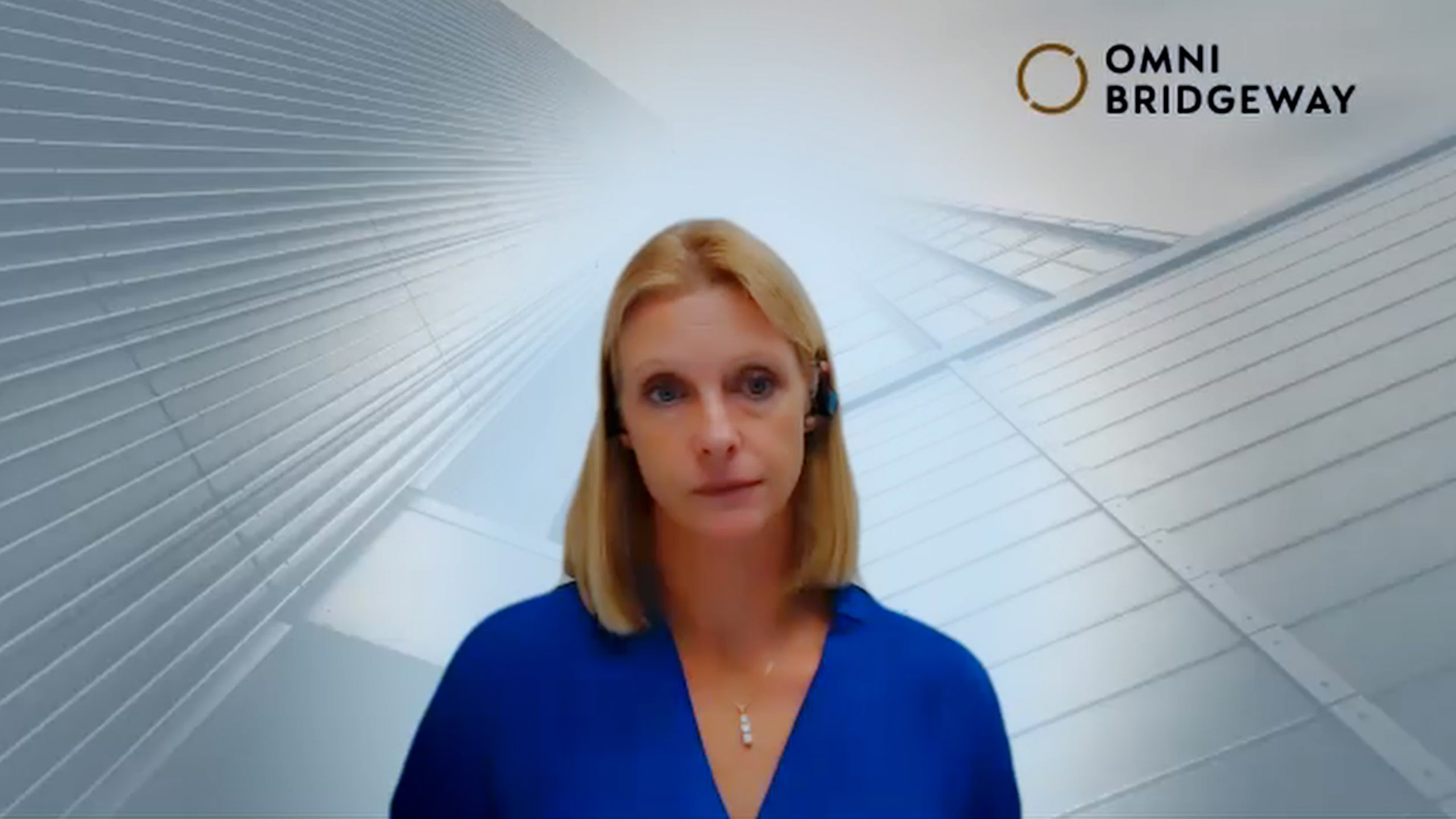
Case Due Diligence
Investment Manager at Omni Bridgeway
inpractise.com/articles/case-diligence
Why is this interview interesting?
- How funders conduct due diligence on cases before sending indicative terms to lawyers
Ruth Stackpool-Moore
Investment Manager at Omni Bridgeway
Interview Transcript
Going back to my case, I bring it to you; how do you begin to carry out due diligence on the case?
This is where our expertise really comes to the fore. This is the way we do it, because we have our own expertise and all of our investment managers are former litigators or dispute resolution professionals. Essentially, the first step is that we ask for a certain number of initial documents so that we can do a preliminary due diligence. We need to have an understanding of those three criteria that I outlined earlier. Firstly, we need to have an understanding of the merits of the case. That means we are looking at both the basis of the claim but also defences that might be raised against it. We are looking at that on an objective basis, not on a this is our best-case scenario basis.
Then, obviously, we need to be able to take a view on the economics. There needs to be some reasonable way to make an assessment of the value of the claim. In some cases, that is quite straightforward and there is no issue. For example, for a breach of contract or something like that, it may be quite clear what the value might be. In other circumstances, it might be the case that some expert work needs to be done, at least of a preliminary nature, to really get an idea of what the claim is worth. Then we would need an estimate from the law firm as to the budget that is going to be required.
Once we’ve got those three pieces of information, we will do our own intelligence gathering, in relation to the defendant or the respondent, to get an idea of their financial position and whether recovery will be possible. If all of those things stack up, then we like to move really quickly to offering indicative commercial terms. For us, there is no point wasting our time doing full due diligence into a case if we can’t agree the basic commercials. We offer the terms at an early stage; it will often only take a couple of weeks to get to that point.
Once we do have those commercial terms agreed then we will do our full due diligence process. Again, most of that is usually done in-house, with us. If we feel the need to, we might, at our own cost, get a second opinion on some of the legal arguments or we might need to do further research into the asset position of the defendant and think about the recovery strategy, at that stage. That is always key in our assessment process. We are still looking for comfort on those three criteria and, as long as our further due diligence means everything still stacks up then we take the case to the investment committee. It is my role, as an investment manager, to present the case to the investment committee and explain why it is a good investment. If they approve it, with the approved budget, we then commence funding the case and start paying the fees, as the case progresses.
How important is speed in getting back those first indicative terms?
It really depends on the case and it depends on the jurisdiction. Quite often, we’re in a competitive process. Obviously, if you drag your feet in terms of that initial review and providing terms, then you’re already at a disadvantage. Equally, the pricing of the funding is very important in the decision making of the client. You need to make sure you have done enough work to be able to properly reflect the risk in the pricing you can offer. It’s a balance. Obviously, too much delay is a bad thing; rushing into things is also not helpful.
Copyright Notice
This document may not be reproduced, distributed, or transmitted in any form or by any means including resale of any part, unauthorised distribution to a third party or other electronic methods, without the prior written permission of IP 1 Ltd.
IP 1 Ltd, trading as In Practise (herein referred to as "IP") is a company registered in England and Wales and is not a registered investment advisor or broker-dealer, and is not licensed nor qualified to provide investment advice.
In Practise reserves all copyright, intellectual and other property rights in the Content. The information published in this transcript (“Content”) is for information purposes only and should not be used as the sole basis for making any investment decision. Information provided by IP is to be used as an educational tool and nothing in this Content shall be construed as an offer, recommendation or solicitation regarding any financial product, service or management of investments or securities.
© 2026 IP 1 Ltd. All rights reserved.


